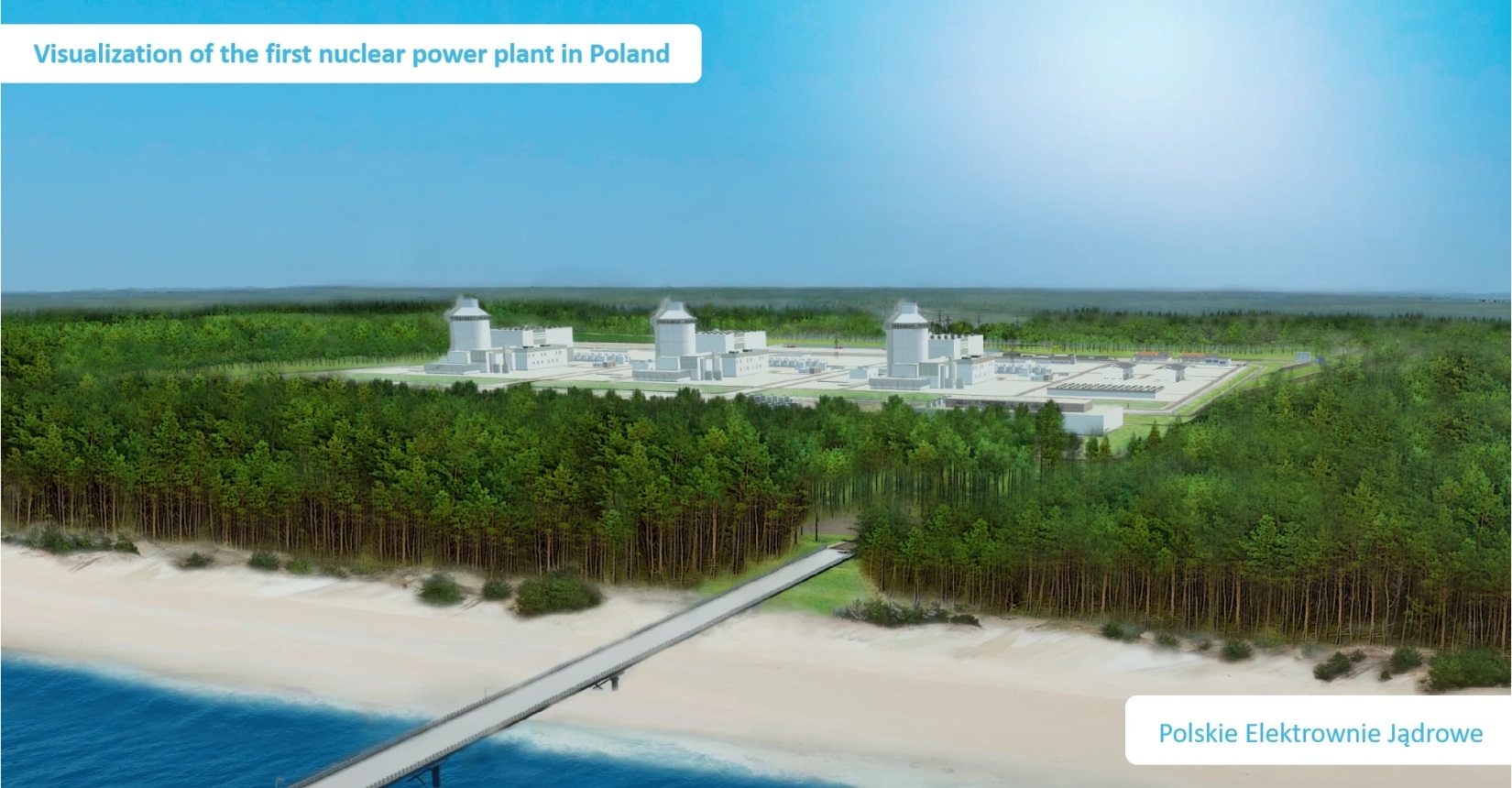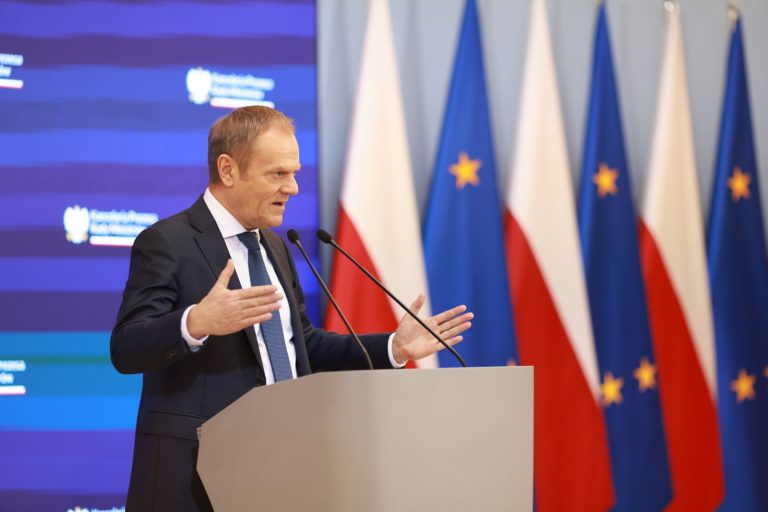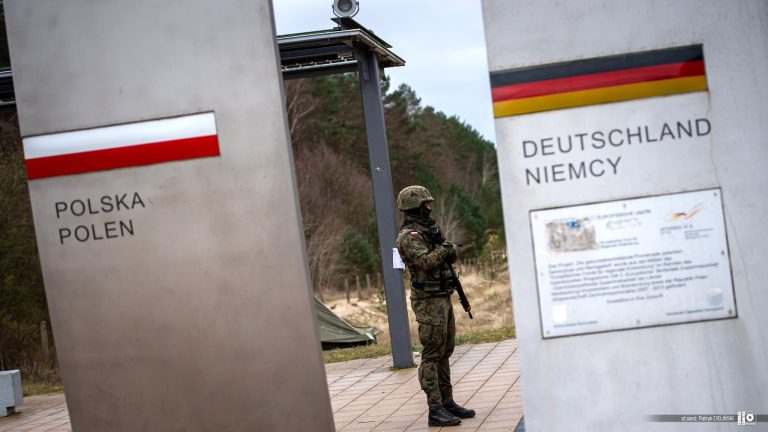Experts concerned by new government’s decision to review nuclear plant location

Poland’s new government wants to review the location chosen by its predecessor for the country’s first nuclear power plant. Experts have warned that any such move risks causing major delays in the project, and thereby in Poland’s plans to reduce emissions by moving away from coal-fired power plants.
In October, Choczewo on the Baltic coast was confirmed as the chosen site for the plant, which will be developed with US partners.
But last week, Donald Tusk, head of the new government that took office in December, announced that a “quick audit” was already underway to see if “the location is optimal”.
The location of Poland’s first nuclear power plant has been confirmed as Choczewo on the Baltic coast. It is due to open in 2033.
We visited the area last year to talk to locals about the nuclear plans. Read our report here: https://t.co/bJkKBg8shS https://t.co/2ziR9LA4GI
— Notes from Poland 🇵🇱 (@notesfrompoland) October 27, 2023
That was followed yesterday by a statement on the issue from Beata Rutkiewicz, the government-appointed governor of the Pomerania province in which Choczewo is located.
Rutkiewicz’s office wrote that “in view of the large number of comments and discussions she has had, it is reasonable to revisit and analyse the environmental decision issued for the location of the power plant”.
However, they also denied “false information appearing in the public space…that a decision has [already] been made to change the location of the nuclear power plant in Pomerania”.
Wojewoda pomorska Beata Rutkiewicz dementuje informacje o planowanej zmianie lokalizacji elektrowni jądrowej. Mówi jednak o potrzebie przeanalizowania decyzji poprzedniego rządu. Premier Tusk już wcześniej przekazał że trwa w tej sprawie audyt. @RadioZET_NEWS pic.twitter.com/IJwGLKWoSR
— Maciej Bąk (@MaciejBk1) January 17, 2024
“Final decisions regarding the location of the plant will be made by the government of Poland in due course, after detailed analyses,” concluded the statement.
This morning, Tusk’s chief of staff, Jan Grabiec, underlined that the government has not yet decided to change the location and that there are currently “no grounds” to do so.
“The power plant is one of the priority issues for the government,” he added. “We will analyse what has been done so far and develop this project. We are yet to enter into direct dialogue with partners, but it will happen…In all investment processes, certain changes may occur.”
Zmiana lokalizacji elektrowni atomowej?@JanGrabiec: Nie ma takiej decyzji i nie ma do niej podstaw. We wszystkich procesach inwestycyjnych, pewne zmiany mogą następować, ale tu nie ma żadnych przesłanek, by mówić o takiej decyzji❗️❗️@RadioZET_NEWS #GośćRadiaZET #Rymanowski
— Gość Radia ZET (@Gosc_RadiaZET) January 18, 2024
Meanwhile, another senior local official, Leszek Bonna, the deputy marshal of the Pomerania province, yesterday expressed concern that the location chosen for the nuclear plant is in “the most valuable tourist area in the Pomeranian region”.
“There are wide sandy beaches and woodlands there. Part of this heritage will be excluded from use by tourists and residents due to the impact of this development,” said Bonna, who suggested the location should be reconsidered.
In a further statement today, Bonna confirmed that the regional authorities had informed the national environmental protection agency, GDOŚ, “about doubts regarding the impact of the selected location”.
🔺Władze pomorskie kwestionują atom z USA na Pomorzu i ożywiają Żarnowiec
▪️Wojewoda pomorska Beata Rutkiewicz podważa w Dzienniku Bałtyckim lokalizację atomu Lubiatowo-Kopalino a wicemarszałek pomorski Leszek Bonna mówi o Żarnowcu.
1/🧵 pic.twitter.com/qh4peAz4X4
— BiznesAlert.pl ⚡ (@BiznesAlert) January 17, 2024
The comments by various officials suggesting a reevaluation of the decision on where to locate the nuclear plant sparked concern from energy experts.
“Changing the location – even to a nearby one – is a waste of several years and millions of zloty,” said Jakub Wiech, editor-in-chief of industry news service Energetyka24. “We already know that there will be no nuclear power plant in 2033 [as originally planned]. We are fighting for 2035, and any further postponement is a disaster.”
“Changing the location for the construction of a nuclear power plant at this point would de facto mean the death of the project, with very dangerous energy and geopolitical consequences,” wrote energy analyst Robert Tomaszewski of the Polityka Insight think tank.
A tu szerzej o tym, dlaczego zmiana lokalizacji atomu to katastrofa.
📄Nie ma sensu audytować lokalizacji, została już ustalona.
⏳Zmiana lokalizacji to strata kilku lat, a polski atom już jest opóźniony
📉Dalsze opóźnienie to niedobory energii w Polscehttps://t.co/esBADtEiGb
— Jakub Wiech (@jakubwiech) January 17, 2024
Meanwhile, the company responsible for the construction of the plant, Polskie Elektrownie Jądrowe (PEJ), in response to information about the planned reconsideration of the site decision, stressed yesterday that Choczewo “meets all the environmental requirements for this type of facility”.
“The reasons for choosing this location include access to cooling water, low population density, lack of buildings and the possibility of transporting bulky cargo by sea,” it wrote in the press release.
✅Wydana dla nas decyzja o ustaleniu lokalizacji dla elektrowni jądrowej na Pomorzu uzyskała status ostatecznej.
Odbyło się to na mocy postanowienia Ministra @MRiTGOVPL, które zamyka proces odwoławczy od decyzji lokalizacyjnej i kończy etap rozpatrywania sprawy przez organy… pic.twitter.com/ugrpYzERkH
— Polskie Elektrownie Jądrowe sp. z o.o. (@PEJ_PL) January 8, 2024
Poland currently generates most of its electricity – around two thirds of it – from coal. Under an energy strategy adopted by the previous government last year, the country would instead generate most of its power from renewables and nuclear.
In addition to the planned nuclear power plant in Pomerania, another is due to be built in central Poland in cooperation with South Korea. Various state-owned and private Polish firms are also hoping to establish a number of so-called nuclear small modular reactors (SMRs).
However, part of the SMR plans were recently also cast into doubt following a negative assessment by a state security agency.
Part of Poland’s nuclear plans has been put in doubt after a security agency issued a negative opinion on planned investment in small modular reactors by a firm part-owned by state energy giant Orlen.
The firm has accused the agency of „incompetence” https://t.co/UAosB2mkdi
— Notes from Poland 🇵🇱 (@notesfrompoland) December 9, 2023
Notes from Poland is run by a small editorial team and published by an independent, non-profit foundation that is funded through donations from our readers. We cannot do what we do without your support.
Main image credit: PEJ (press materials)

Alicja Ptak is senior editor at Notes from Poland and a multimedia journalist. She previously worked for Reuters.






